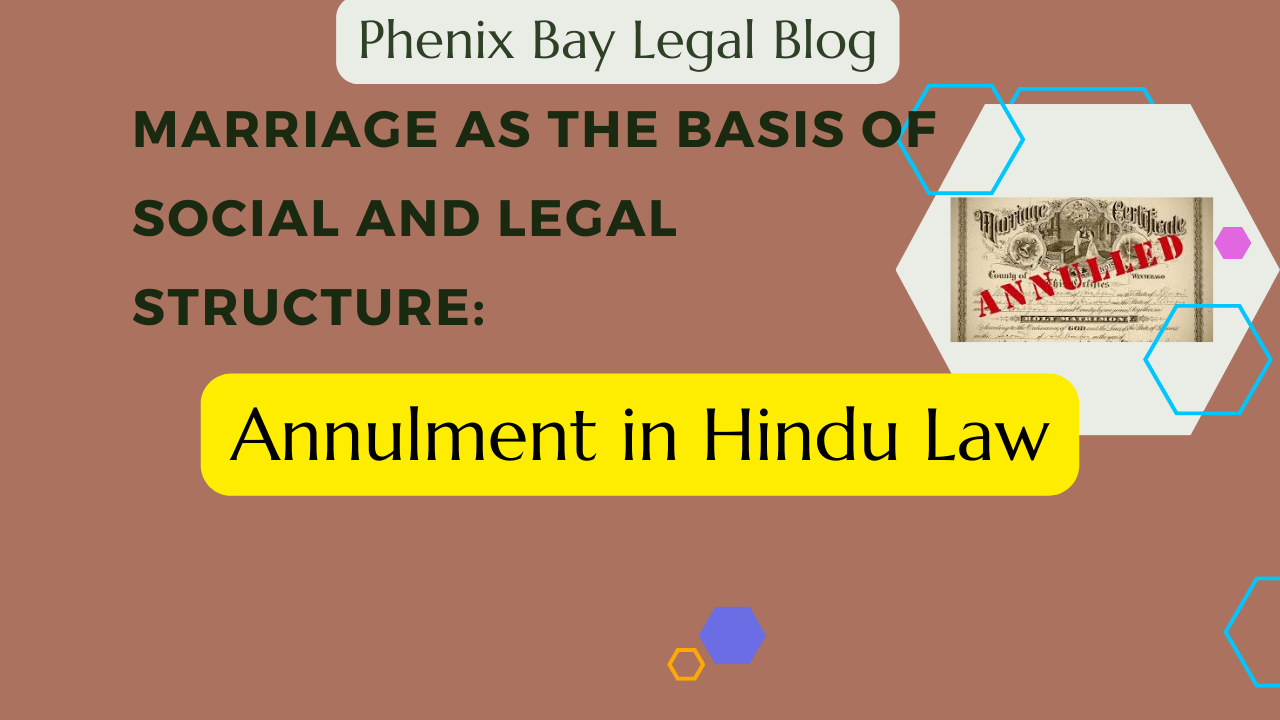
Marriage as the Basis of Social and Legal Structure: Annulment in Hindu Law
While divorce provides a mechanism to end a marriage, annulment takes a different route, declaring a marriage void or voidable. This article delves into the concept of annulment under The Hindu Marriage Act, 1955, examining its legal basis, grounds, and implications, and distinguishing it from divorce.
Marriage as the Basis of Social and Legal Structure: Annulment in Hindu Law
Marriage forms the foundation of social organization and establishes significant legal rights and obligations. In the context of Hindu law, marriage is not merely a contract but a samskara (sacrament), representing a union that transcends earthly obligations and touches upon spiritual duties. However, circumstances can arise where the validity of this sacred institution comes into question. While divorce provides a mechanism to end a marriage, annulment takes a different route, declaring a marriage void or voidable. This article delves into the concept of annulment under The Hindu Marriage Act, 1955, examining its legal basis, grounds, and implications, and distinguishing it from divorce.
What is an Annulment Under Hindu Law?
Annulment is a legal declaration that a marriage is null and void. It is governed by Section 5, Section 11, and Section 12 of the Hindu Marriage Act, 1955. Unlike divorce, which dissolves a legally valid marriage, annulment retroactively invalidates the marriage as if it never existed.
Void vs. Voidable Marriages
- Void Marriages: Automatically invalid under the law due to certain prohibitions. Annulment for such marriages is governed by Section 11.
- Voidable Marriages: Valid until declared void by a court, based on specific grounds under Section 12.
Legal Provisions Governing Annulment
- Section 5: Essential Conditions for a Valid Hindu Marriage
A Hindu marriage is deemed valid if it satisfies the following conditions under Section 5:
- Neither Party Has a Living Spouse: Bigamy is strictly prohibited.
- Mental Capacity:
- Neither party should be incapable of giving valid consent due to unsoundness of mind.
- Mental disorders that make a person unfit for marriage or procreation render the marriage voidable.
- Recurrent insanity or epilepsy at the time of marriage disqualifies the individual.
- Age Requirement:
- The bridegroom must be at least 21 years old.
- The bride must be at least 18 years old.
- Prohibited Relationships: The parties must not fall within prohibited degrees of relationship unless customs allow otherwise.
- Sapinda Relationships: Parties must not share a common lineage (sapinda) unless permitted by local customs.
Failure to meet these conditions can render a marriage either void or voidable, depending on the nature of the violation.
- Section 11: Void Marriages
Section 11 declares certain marriages null and void if they contravene clauses (i), (iv), or (v) of Section 5:
- Bigamy: A second marriage while the first spouse is alive is void.
- Prohibited Degrees of Relationship: Marriages within prohibited relationships (e.g., brother-sister, uncle-niece) are void unless customs permit.
- Sapinda Relationship: Marriages violating sapinda restrictions are void unless allowed by custom.
These marriages are invalid from the outset, but a decree of nullity is required to formally recognize their invalidity.
- Section 12: Voidable Marriages
Section 12 governs voidable marriages, allowing annulment under specific circumstances:
- Non-Consummation Due to Impotency: If the respondent is impotent and the marriage has not been consummated.
- Mental Disorder: If a party was incapable of giving valid consent due to mental incapacity or disorder.
- Fraud or Force: If consent to the marriage was obtained through fraud or coercion. Examples include concealing critical information (e.g., a criminal record or health condition).
- Pregnancy by Another Person: If the respondent was pregnant by another person at the time of marriage and the petitioner was unaware.
Grounds for Annulment Under the Hindu Marriage Act
The grounds for annulment are divided into two categories: those applicable to void marriages and those applicable to voidable marriages.
- Grounds for Void Marriages (Section 11)
- Bigamy: Marrying while already having a living spouse.
- Prohibited Relationships: Marriages between close blood relatives.
- Sapinda Relationships: Marriages within three generations from the father’s side and five generations from the mother’s side.
- Grounds for Voidable Marriages (Section 12)
- Impotency: Non-consummation of the marriage due to the physical incapacity of one spouse.
- Mental Incompetence: Inability to give valid consent due to mental illness.
- Fraud or Coercion: Deception or force used to obtain consent for marriage.
- Pre-Marital Pregnancy: The respondent was pregnant by someone other than the petitioner at the time of marriage.
Legal Implications of Annulment
- Status of the Parties
Upon annulment, the parties are restored to their original status as unmarried individuals. The marriage is treated as if it never existed.
- Legitimacy of Children
Under Section 16 of the Hindu Marriage Act, children born from void or voidable marriages are considered legitimate, ensuring their rights are protected.
- Maintenance and Property
Unlike divorce, annulment typically does not involve maintenance or division of property, as the marriage is treated as void from the beginning.
Judicial Precedents in Annulment Cases
- Sushila Gothala v. Premchand
This case reiterated the importance of adhering to the essential conditions of a valid Hindu marriage under Section 5.
- Yamunabai Anantrao Adhav v. Anantrao Shivram Adhav
The Supreme Court clarified that a second marriage during the subsistence of a first marriage is void under Section 11, even if the parties were unaware of the first marriage.
- Vinita Saxena v. Pankaj Pandit
This landmark case dealt with the annulment of a marriage on the grounds of mental illness, setting a precedent for cases under Section 12.
Comparison Between Annulment and Divorce
|
Aspect |
Annulment |
Divorce |
|
|
|
|
|
Nature |
Declares a marriage null and void (retroactive). |
Dissolves a valid marriage (prospective). |
|
Grounds |
Limited (fraud, force, mental incapacity, etc.). |
Broader (irretrievable breakdown, cruelty, etc.). |
|
Legal Status |
Marriage is treated as never having existed. |
Marriage is recognized but ended legally. |
|
Children's Status |
Legitimate under Section 16. |
Legitimate. |
|
|
|
|
|
|
|
|
|
|
|
|
|
|
|
|
|
|
|
|
|
|
|
|
Filing an Annulment Petition
To file a petition for annulment under the Hindu Marriage Act:
- Identify the Grounds: Ensure the marriage violates conditions under Section 5, Section 11, or Section 12.
- File in the Appropriate Court: The petition must be filed in the Family Court or District Court with jurisdiction over the marriage.
- Provide Evidence: Document evidence supporting the claim, such as medical reports for impotency or proof of fraud.
- Comply with Timelines:
- For fraud or coercion, the petition must be filed within one year of discovery.
- For other grounds, the petition must adhere to reasonable timelines.
Challenges in Seeking Annulment
- Burden of Proof: The petitioner must provide substantial evidence to prove the grounds for annulment.
- Strict Timelines: Failure to file within prescribed periods may result in dismissal.
- Social Stigma: Annulments may face resistance in conservative communities, especially when based on sensitive grounds like impotency or fraud.
Conclusion: Annulment as a Legal Remedy
Annulment under the Hindu Marriage Act, 1955, serves as a critical legal tool to address marriages that are either void or voidable. While rare, it provides an essential mechanism to uphold the sanctity and validity of marriage in line with societal and legal norms. As lawyers, understanding the nuances of annulment is crucial to advising clients effectively and ensuring justice within the framework of Hindu law.
More >>

Jyoti Sharma vs. Vishnu Goyal & Anr. 2025 INSC 1099
This was a long running legal battle between a landlord and her tenants over a shop. The landlord, Jyoti Sharma, wanted her shop back for two main reasons: The tenants had stopped paying rent. She needed the shop to expand her family's business (her bonafide need).
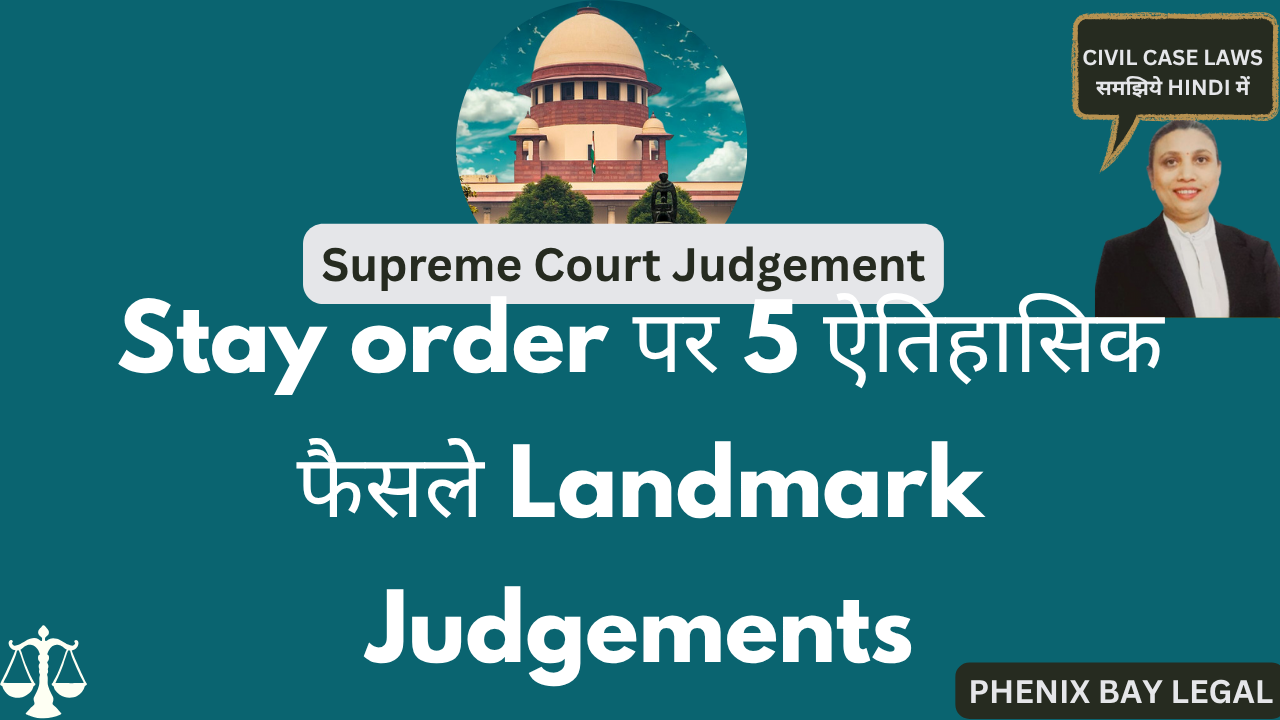
Landmark Judgement on Injunction
In civil, commercial, or even family disputes. But when is a simple injunction suit enough? When do you need to add a declaration of title? And how do courts balance urgency vs evidence in interim relief?
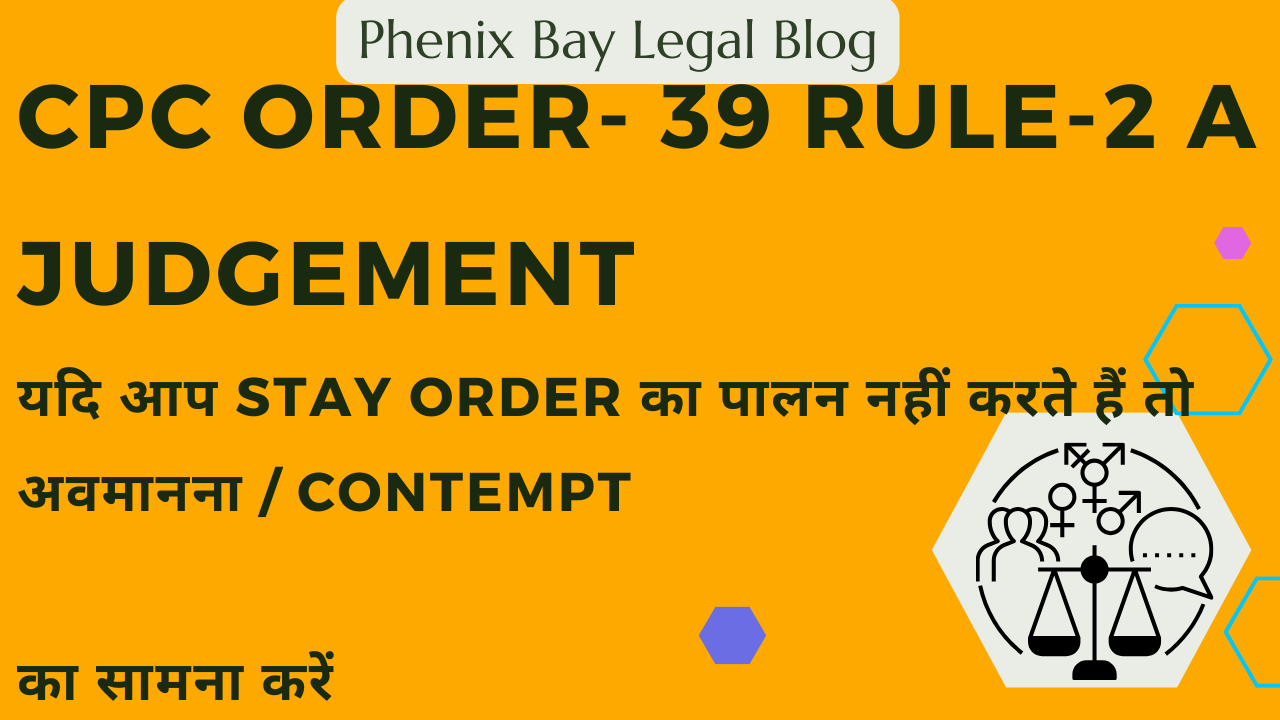
Case Analysis: Stay Order Violation and Contempt of Court by Supreme Court of India
Giving an undertaking to the court is equivalent to an order of injunction—any violation invites contempt proceedings.Injunction orders remain valid until formally vacated by a court—violation before vacation can lead to punishment.
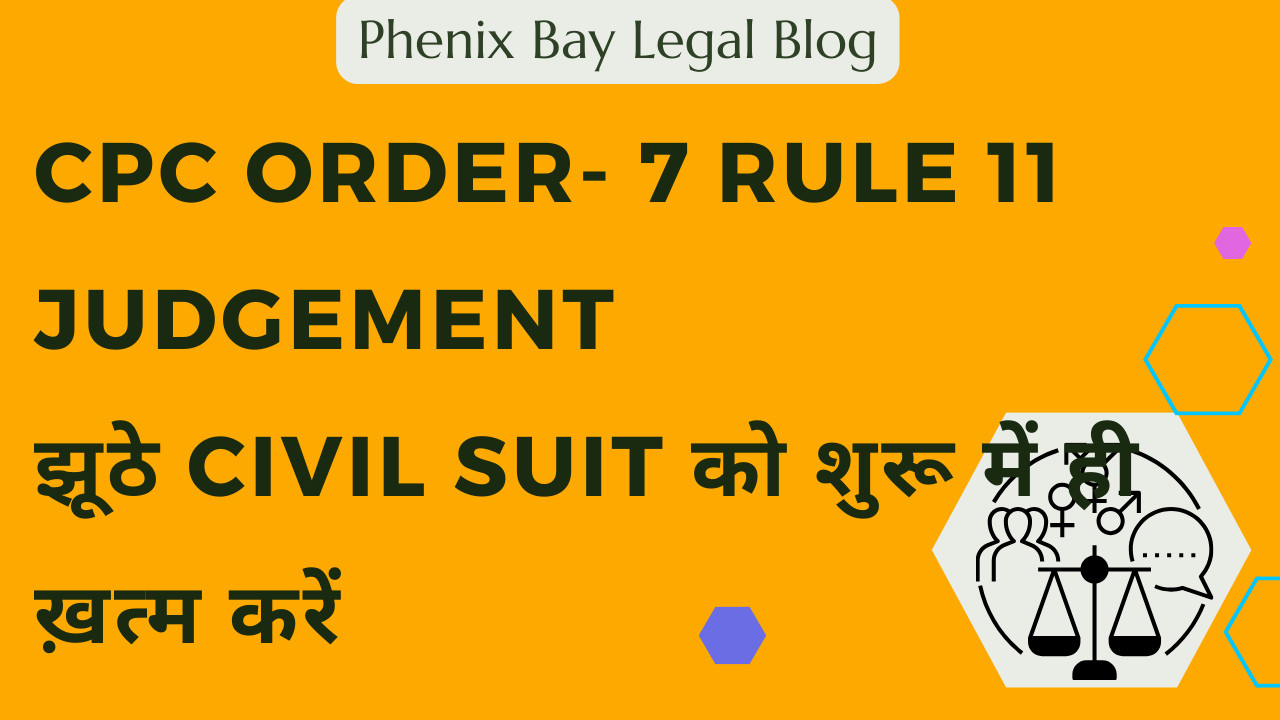
Order 7 Rule 11 of CPC Explanation in Land Mark Judgement
The Sopan Sukhdeo Sable judgment is a landmark ruling that reinforces Order 7 Rule 11 of CPC as a safeguard against frivolous and legally untenable claims. It highlights the importance of examining only the plaint’s contents to decide whether a suit should be dismissed at the threshold.
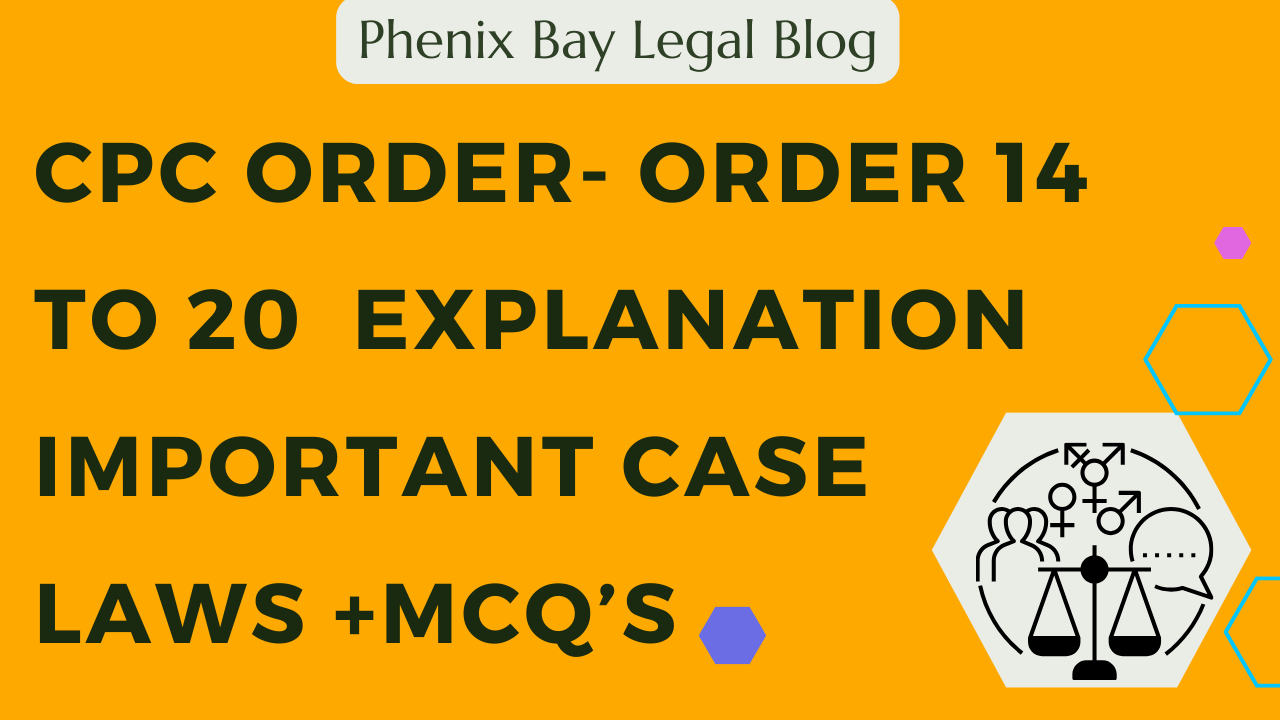
CPC Order- Order 14 to 20 Explanation IMPORTANT CASE LAWS +MCQ’S for Judiciary Exam Preparation
CPC Order- Order 14 to 20 Explanation IMPORTANT CASE LAWS +MCQ’S for Judiciary Exam Preparation
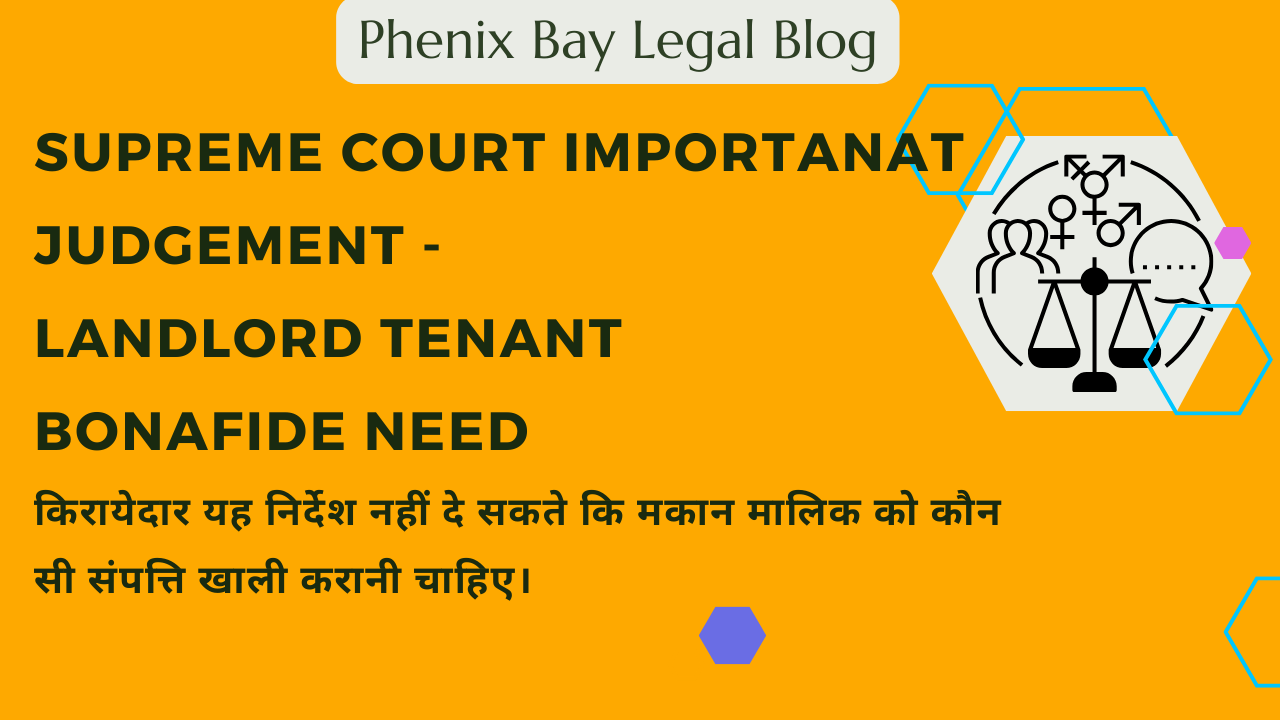
Supreme Court ImportanatJudgement - Landlord Tenant Bonafide need
This case involves a dispute over eviction of a tenant based on the bona fide need of the landlord. The Supreme Court ruled in favor of the landlord, reversing the High Court's decision. Below is a detailed breakdown of the judgment with relevant legal principles, precedents, and reasoning.